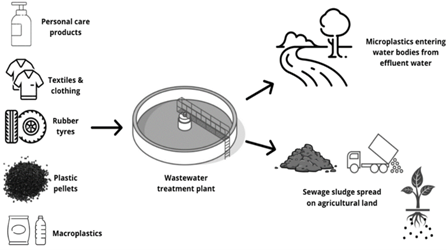PREVIOUS
STP sludge as Fertilizer
May 14 , 2023
970 days
807
0
- Indian sewage treatment plants (STP) found that most of its sludges had “high potential” for use as fertilizer.
- They required treatment before it could be used unrestricted in farms, or as a potential biofuel.
- A first of its kind analysis of the sludge found in STPs which set up to treat polluted water from the Ganga.
- IIT Roorkee found that most of the sludge analysed after drying fell into the class B category.
- Nitrogen and phosphorous levels were higher than those recommended by India’s fertilizer standards (FCO, 2009).
- However, potassium levels of some sludges were less than recommended.
- The total organic carbon was more than 16%, again higher than FCO recommendations.
- But the degree of pathogens as well as heavy metal contamination was above the recommended fertilizer standards.
- Treated sludge can be classified as class A or class B — as per the standards of the United States Environment Protection Agency.
- The class A being safe is to be disposed of in the open and useful as organic fertilizer.
- Class B means that the sludge can be used in “restricted” agricultural applications.
- India doesn’t yet have standards classifying sludge as class A or B.

Leave a Reply
Your Comment is awaiting moderation.


